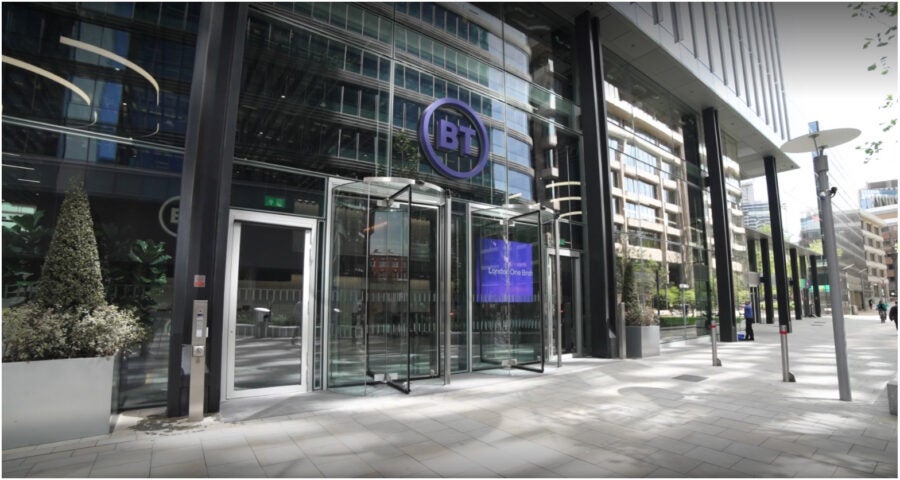
For Gabrielle Ginér, BT Group’s head of environmental sustainability, the fight against climate change necessitates a “collective effort”. Speaking over Zoom before heading out to COP27 in Sharm El-Sheikh, Egypt, she asks: “What can everybody do?”
Ginér, who joined BT as its head of public affairs and regulation for BT Japan in 1997, has been in charge of the company’s science-based carbon abatement projects since 2009. It is a role she takes very seriously, noting that “all issues are climate issues”.
According to Ginér, BT, as one of the UK’s largest private sector employers, has a responsibility to act as an “exemplar” when it comes to mitigating climate change. “We use around 1% of the UK’s electricity, so for us there is a huge cause to push towards renewables,” she says.
BT has already switched its operational electricity to renewable sources, which Ginér claims has reduced the company’s carbon emissions by 55% since 2016/17. It is significantly scaling back on real estate, too, with a view to downsizing from 300 offices to 30.
BT has also committed to using energy-saving features within all its buildings, such as dimmable lighting and heat recovery systems. These, alongside a general shift towards more remote working, are “obvious steps” that companies can take to decrease their carbon footprint, Ginér says.
Collaboration between government and business
While Ginér praises the UK government’s record on combating global warming, she points out that plenty more could be done. “The fact that the government’s net zero target is enshrined in law is a great thing. But companies need more support. If the government says, ‘We are behind you and we are going to put these things in place to help you’, then smaller companies in particular may feel more compelled to change.”
Rhetoric, Ginér insists, must be matched by investment. BT Group is aiming to electrify all 33,000 of its company vehicles within the next decade, but she warns that without the right infrastructure in place, many companies will not feel confident in following suit. “How do we get more grants? How do we get more charging points?” she asks. “If the government wants stuff to happen, it has to look at the barriers that need to be overcome first.”
Building a circular economy
Another area of focus is recycling. Ginér believes it must “become second nature” and that the world has to move away from the single-use approach. BT, she says, is trying to encourage people to think carefully about how they use their equipment. “Circularity is at the heart of everything we do,” she claims.
Ginér explains that it’s just as important to incentivise positive behaviour when it comes to climate exchange as it is to disincentivise waste. “One thing I’m personally quite proud of is our policy around returning old BT kit [such as broadband routers]. You can’t just throw it in the bin as BT owns it. If you don’t return it, which you can do for free, then you owe us a penalty fee.”
Ginér says customers, as well as colleagues, have a part to play in mitigating climate change. It isn’t so much that BT is trying to scare people into compliance, she clarifies, as it is encouraging a message of collaboration. “We want to tell them they can work with us on this,” Ginér adds.
ESG takes priority
Going forward, Ginér predicts there will be little if any distinction between a company’s profitability and its ESG credentials. Increasingly, she notes, potential investors will evaluate whether a company is worth investing in based on its commitment to mitigating climate change and positive social causes.
“It makes business sense,” she says. “Companies that follow the science and take action on science-based targets are more likely to be successful than the ones that don’t. People care about where their money is going.”
Ultimately, Ginér notes, climate change cannot be solved by any one company. She says BT must try to “inspire” other businesses to implement smarter and more sustainable practices. She wants to challenge the misnomer that greening business is a costly gimmick, and rather a “genuine cost-saving efficiency”.

For Gabrielle Ginér, BT Group’s head of environmental sustainability, the fight against climate change necessitates a “collective effort”. Speaking over Zoom before heading out to COP27 in Sharm El-Sheikh, Egypt, she asks: “What can everybody do?”
Ginér, who joined BT as its head of public affairs and regulation for BT Japan in 1997, has been in charge of the company’s science-based carbon abatement projects since 2009. It is a role she takes very seriously, noting that “all issues are climate issues”.
According to Ginér, BT, as one of the UK’s largest private sector employers, has a responsibility to act as an “exemplar” when it comes to mitigating climate change. “We use around 1% of the UK’s electricity, so for us there is a huge cause to push towards renewables,” she says.
